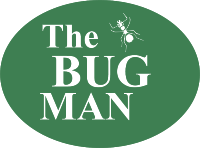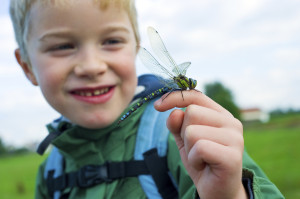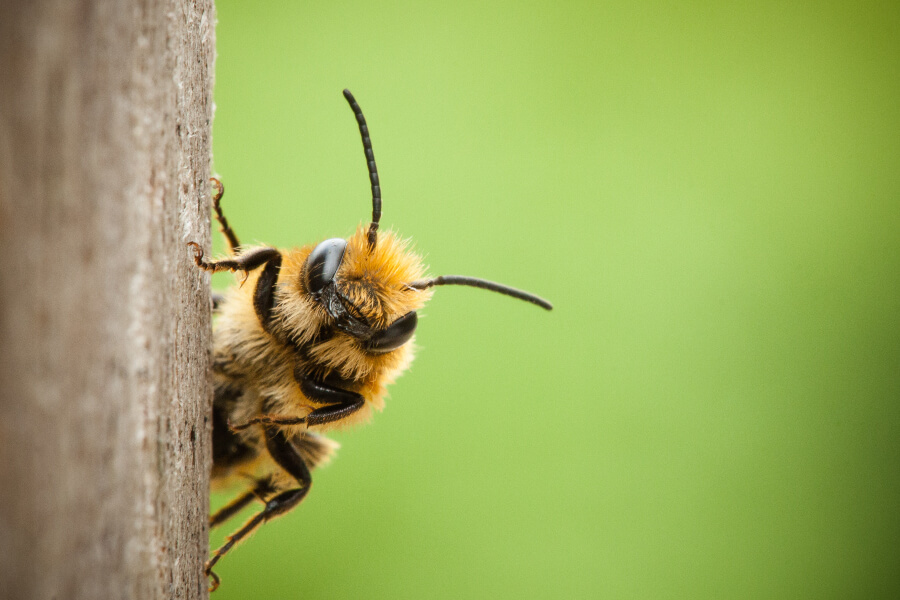Children Embrace our beneficial insects. Shouldn’t you?
Children are so fun and curious about bugs! Little Johnny often doesn’t think twice about picking up a spider by the leg and running to show his mommy. When he shows her his discovery, mom will often scream and run as far away as possible. Johnny will inevitably laugh, uncontrollably, while mom yells “Get that thing out of here!”
It’s a common story that we hear over and over. There are so many exaggerated horror stories about various insects: Brown recluse spiders will cause your leg to fall off. Termites will eat your house down to the ground. You will surely die a terrible disease if bitten by a mosquito. Who knows where these stories come from or why. But, they create a fear in some folks that are hard to shake.
The honey bee and other beneficial insects have an important role in our environment
Take the honey bee, for example. They are the pollinators for our food crops. Their population has been in a steady decline in recent years due to a number of factors such as viruses, parasites, poor nutrition, limited access to clean water and exposure to pesticides. WHAT??? Exposure to pesticides?? Yes, it is true. We all (including us) have a huge responsibility in taking care to protect the honey bee and other beneficial insects.
In the spring you will sometimes see huge swarms of bees in the bushes and flowering trees. Sometimes they will stick around for a few minutes and then be gone. Sometimes they will stay for a few days. It’s easy to grab that jug of bug juice or call an exterminator to get rid of them. But, if they are not in an area that will harm you or your loved ones then it is usually best to leave them to collect the pollen. The additional benefit is that your plants and flowers will be even more beautiful later on.
There are a variety of other insects that are beneficial. Usually, most people first think of ladybugs or the asian lady beetle. Absolutely! Did you know that there are more than 400 species of the lady beetles in North America? There are also lacewings, parasitic wasps, spiders, tachinid flies, pirate bugs (aaaargh!) and ground beetles, just to name a few.
Protecting the environment and people at the same time
As a pest control professional, our goal is to protect your home from a pest invasion. If there is a pest problem in your living space then, yes, there is a cause for concern. You will want to eliminate the problem to prevent disease and illness/injury in your family. But, if we can keep your environment safe without having a negative impact on the rest of Murfreesboro, middle Tennessee, and beyond, then we are all winning.


